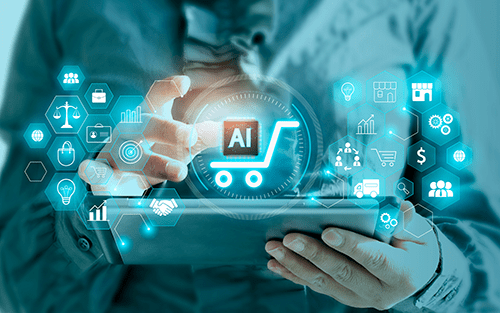Companies are under constant pressure to bring new products to market quickly without compromising quality. Achieving speed in product development can be challenging, but AI software for PLM is revolutionizing the way businesses streamline their processes to reduce time-to-market. By integrating artificial intelligence into Product Lifecycle Management (PLM), companies can automate numerous tasks, allowing teams to work more efficiently and make data-driven decisions faster.
One of the primary advantages of AI in PLM is its ability to handle large volumes of data. In traditional product development, managing complex datasets from design, manufacturing, and testing can slow down decision-making. AI-powered tools can instantly analyze and process these datasets, providing insights and recommendations to improve processes. This speeds up the identification of potential issues and allows teams to address them before they impact the overall timeline. For example, AI algorithms can detect design flaws early, suggesting alternative solutions or automatically adjusting parameters to resolve conflicts, ensuring that the development cycle is more efficient.
Additionally, AI can assist in automating repetitive tasks that typically consume valuable time. For instance, AI tools can automatically update product specifications, create reports, and manage documentation, allowing product teams to focus on more strategic tasks such as innovation or market research. This reduces bottlenecks and accelerates the overall workflow.
AI’s predictive capabilities also play a crucial role in reducing time-to-market. By analyzing historical data and identifying patterns, AI can forecast potential challenges and provide proactive solutions. For example, predictive analytics can help anticipate supply chain disruptions, suggest the most efficient manufacturing routes, or even forecast consumer demand. This enables businesses to make informed decisions quickly, minimizing the chances of delays and ensuring that products are delivered on time.
Another key benefit of AI in PLM is its ability to improve collaboration among cross-functional teams. AI systems can create a centralized hub for all product data, making it easier for teams from different departments—such as design, marketing, and production—to collaborate. This improved communication and information sharing can speed up decision-making and reduce miscommunications that could cause delays.
AI can also optimize the product testing phase, which traditionally takes a considerable amount of time. By using simulations and virtual testing, AI can help identify weaknesses in a product design before it is physically produced, reducing the need for extensive physical prototypes. This not only shortens the development timeline but also lowers production costs.
In conclusion, integrating AI software for PLM provides companies with a powerful tool to reduce time-to-market. From automating repetitive tasks to providing predictive insights, AI accelerates product development cycles, enhances collaboration, and optimizes testing. As businesses continue to face the challenge of launching products faster while maintaining high standards, AI will play an increasingly important role in making these goals a reality.





